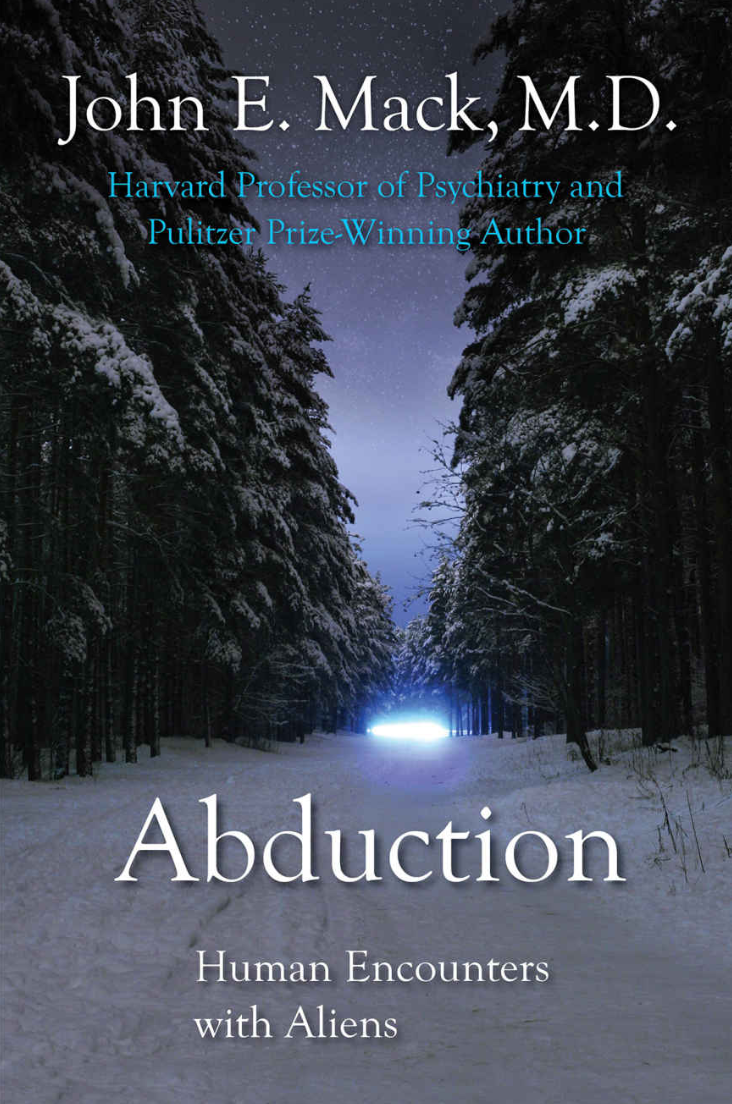Pros
- This book is one of the rare cases where a respected doctor with a respected background investigates a phenomenon with an objective, analytical mind
- Mack is transparent about his methodology, and he addresses the potential criticisms and doubts people harbor about UFOs, abductions, and aliens
- No sense of exaggeration, sensationalizing, or leaps to conclusions that require strenuous effort of will to make
- Subject matter is treated with legitimacy and an unbiased reporter
Cons
- Mack’s interactions with his patients don’t lead us to any conclusive evidence of aliens or UFOs for those who are looking for something more conclusive
What’s refreshing about this book is that John Mack is extremely transparent about his methodology and the possible criticisms that surrounds his work with abductees.
Mack begins by addressing the ridicule and common reasons why people usually dismiss hypnosis as a tool to help abductees.
Once you accept that the possibility that the experiences are real, then you can’t help but to wonder what the purpose of the aliens’ behavior is.
Abduction Human Encounters with Aliens will give you some first-person accounts of the aliens, their ships, and even their motives. Mack’s works gives us some insight into the possible reasons and motivations the aliens have regarding people or even humanity.
Abduction: Human Encounters with Aliens Review
Mack has a fairly simple structure for the book: 13 cases where he goes over a quick patient history and then straight into the abduction experience. The discussion after the regression should be interesting for those who are new to this book or to the field.
One of the most common issues I’ve had with reading books on this subject matter is the credibility of the authors or the authority of the authors. So many people, especially for books written earlier, have little to no authority to write about the topic. John Mack is different.
Mack’s background is almost impeccable. So someone with his credentials to write about this topic and risk his reputation says a lot about his belief. Mack is even careful to note the more common criticisms about hypnosis, as well as the possibility for the patients to be making the stuff up.
Regardless of whether or not abductions are taking place, the patients clearly suffer from some kind of trauma. If we accept the possibility that these people are actually experiencing abductions by aliens, then we can begin to learn more about the reasoning, and perhaps even the technology.
The first case Mack discusses in the book contains some of the more stereotypical and almost ridiculous claims made by a patient, Ed. Some of the recall is so fantastic that even Ed himself questions the reality of the experience.
Ed’s own disbelief is shared by many of the abductees: they’re regular people who have had this extraordinary experience and don’t even believe that they’ve been through it despite having some kind of related trauma.
For example, Ed’s case includes some sexual probing and encounters with the beings. And because this took place during his younger years, it’s almost as though the entire experience is some kind of fantasy concocted by teenage hormones.
There’s nothing to prove one way or another that the abduction took place save for Ed’s own recounting and subsequent eyewitness testimony regarding UFOs. Ed’s experience is representative of other experiences by abductees.
Many of the patients in the book report similar experiences regarding their reproductive systems. There must be some conclusion that we can deduce from these experiences even if the patients are all making the stories up. To address the issue of potential fraud, Mack includes a lot of background for each patient. Readers get to know how these people are, what they do, or where they come from.
This background information mitigates some of the concerns readers may have. For instance, without background information, readers may assume these these patients are attention seekers or suffering from some undiagnosed medical issue.
The remaining cases provide some insight as to the phenomenon. They share so many similarities that one can’t help but wonder if the experience is real or if all these different people from different parts of the country are reading the same book on how to behave and fool others into thinking that one has been abducted.
I get the feeling that the patients in Mack’s book would rather have a medical diagnosis than having experienced an abduction (in almost all cases, more than one abduction). Mack’s goal is first to help his patients, and we see that in his restraint. I’m certain he has just as many questions his readers may have, but Mack doesn’t push his own curiosity onto his patients, so we may not necessarily get the answers we want from these abductees.
These people are just as aware of the ridicule surrounding aliens and UFOs and would prefer living their lives as normally as possible. Mack’s serious consideration of the abduction experience means that they have an avenue available for help instead of the traditional medical diagnosis which may just write them off as suffering from stress, hallucinations, or nightmares.
If you’re looking for a book about alien abductions and you want a credible source, then read Abduction Human Encounters with Aliens. It’s one of the most authoritative books on the topic coming from a highly respected and credible author.



